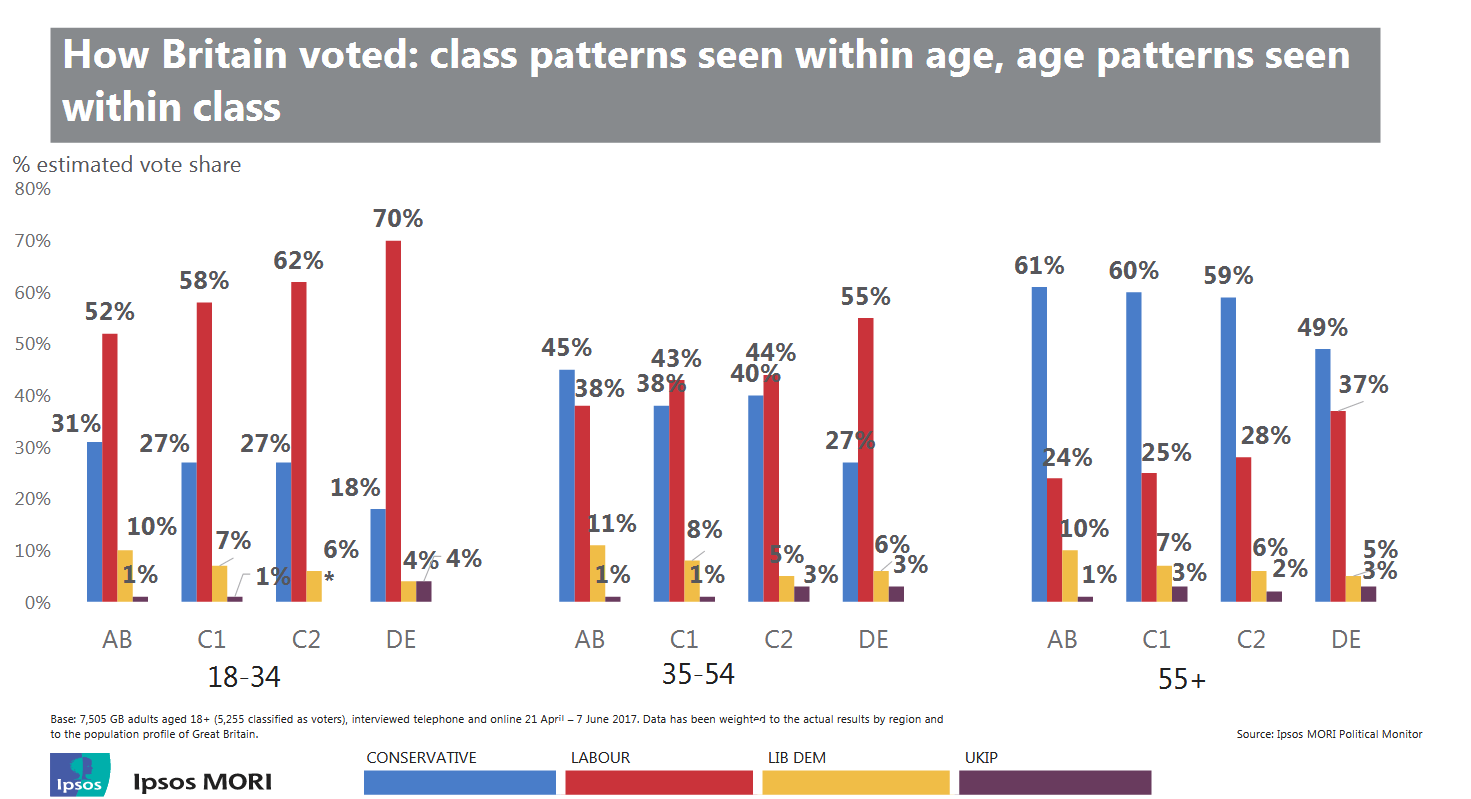I never knew until very recently that the standard National Readership Survey socio-demographic classifications – ABC1, C2DE etc – deal with pensioners by classifying them all as working-class unless they are rich enough to be considered independently wealthy and therefore bucketed in with the As. (The rival National Statistics classification doesn’t deal with the retired at all.) This is a really important example of the politics of data. Inevitably, in collecting data, one has to make decisions about what you are going to count and how. Once made, though, these become social facts.
I had taken it as read for years – decades – that the Labour Party’s electorate was drifting up the social class scale, that there was a problem getting the working class to vote Labour. This has become a substantial media industry. Here’s the Guardian blithely ignoring the issue. But in fact, much of this supposed effect is actually an epi-phenomenon of the boomers getting old. We classify pensioners – people who by definition have stopped working – as working class. Therefore, if old people are more likely to vote Conservative (they are) and their numbers are increasing (they are), arithmetically the Tory share of vote among the C2DEs must go up.
The following chart, from Ipsos MORI, gets to the point. If you look at the cross-break of age groups by class, you find that the effect pretty much vanishes. Labour won the working class, defined as such, handily, and lost the retired by a distance.
The really disturbing thing here is that after all these years of arguing back and forth about those Very Real Concerns of the White Working Class, I never thought to interrogate this fairly basic point about the data. It would be easy to point out that mainstream pundits didn’t, but then most of them count like the rabbits in Watership Down: one, two, three, four many. But my own incuriosity about the classifications startles me. This pragmatic device of newspaper industry market research seemed as enduring and given as class itself. Given that British people tend to imagine they have a refined and forensic awareness of class, this is really quite worrying.
It’s also fascinating that the infrastructure of facts that supports our understanding of politics is so closely connected with day-to-day operations in newspaper circulation departments, but then how could it be otherwise? One of the most important facts about British politics is that it’s structured by the era of mass literacy. Newspaper readership, even now, is much higher than it is in France or the United States, and the NRS itself was devised back when the Daily Mirror was the most-read paper in the world that wasn’t compulsory.
This gives rise to an interesting question. However flawed the NRS is, it’s relatively open. You can just look up the details. It’s not technically open-source, but it might as well be. If you can find the money to commission a poll, or round up enough volunteers, you are free to replicate its results. Of course I didn’t bother even to look it up, but then democracy is among other things the rule of those who turn up. It may be a flawed contribution to the infrastructure of facts, but it’s a contribution. Can we say this about Facebook or any other Internet advertiser’s metrics, which who knows we might be using in fifty years’ time?
Update: it’s been brought to my attention that the rabbits in Watership Down can count to four. Thanks, twitter pedant.

I guess an interesting political question is: Now we’re past the “age of Right to Buy” will the next generation of pensioners look so kindly upon the Tories?